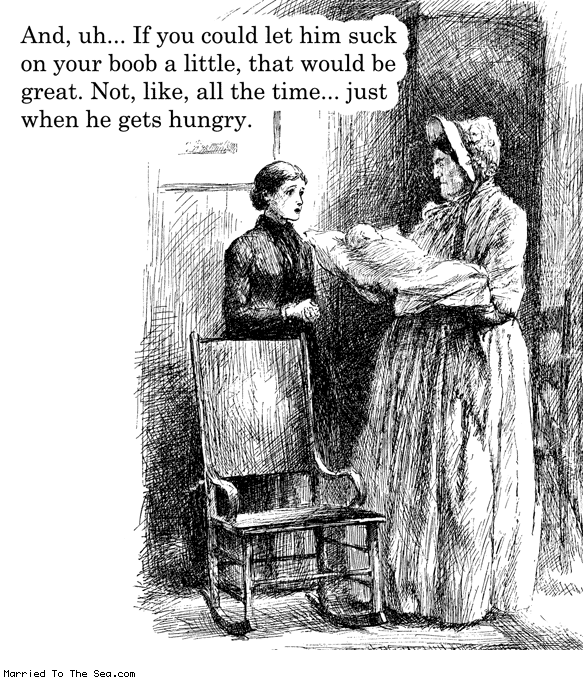My Lent resolution has apparently not yet translated into more posting! A few factors have contributed to that, among them my new full-time job(!) I have gone from per diem at the hospital working 24ish hours a week, to full-time working 36 hours a week (three 12-hour night shifts). Going from working 8-hour shifts to 12-hour shifts is a surprisingly big adjustment (although fortunately not as big an adjustment as beginning to work nights was.) There are drawbacks to my new schedule (less flexibility, losing several evenings, etc.) but the benefits are, well, the benefits! Apart from my grad school assistantships, I haven't had a job with health insurance since I was in AmeriCorps. I am looking forward to having good health insurance, along with retirement benefits. One of my goals in going to grad school was to finally get a "real" job with salary + benefits, and while it didn't happen in exactly the field I expected it to, I couldn't be more pleased (except for the part where I work nights. Hopefully someday I'll work days again!)
Now that I've made my excuses, long-delayed highlights from the second day of the Breastfeeding & Feminism conference:
* Possibly my favorite presentation of the day was Robbie Davis-Floyd's report on the International MotherBaby Childbirth Initiative. Based on the Baby-Friendly initiative, the IMBCI has outlined
10 Steps to optimal motherbaby maternity services, developed with the input of organizations around the world. Steps include treating every woman with respect and dignity, offering continuous labor support, providing evidence-based practices, and providing access to emergency OB care. Three sites have applied and been accepted to become demonstration sites, one each in Austria, Brazil, and Quebec, Canada. You can read more about the (very diverse!) demonstration sites
here. She discussed more about the sites and more details of their applications. She also talked about sites that will be added soon, in South Africa, Mozambique, India, and - amazingly - the largest maternity hospital in the Philippines, which does
22,000 births a year (I cannot even imagine). It's inspirational to see institutions from countries with different levels of development and each with their own unique strengths and challenges, working on the aim of improving maternity care. I am so excited to see ow the demonstration projects go.
* Michelle Lauria, an OB-GYN from Dartmouth, gave a great talk on reducing late preterm birth, a project of the Northern New England Perinatal Quality Improvement Network. She also talked about eliminating elective inductions before 39 weeks, and in mothers who do not have a high enough Bishop's score. She said the key is to put power in the hands of the nursing staff with the hospital authorities backing them up; the doctors know if they send someone in for an induction who does not meet the guidelines, the charge nurse will send them right back home. She talked about the next step being setting stricter guidelines on ways that some doctors use to get around the restrictions; she gave the example of mildly elevated blood pressures without proteinuria being called pre-eclampsia and used as a reason to induce early.
She also discussed VBAC at some length. Her take on it was, in her region, it's all about the money - as in, medical malpractice insurance costs. In northern New England, which has a lot of isolated rural communities, she gave an example of a small regional hospital that wants to offer VBACs but would have to pay $120,000 more in malpractice insurance to do so. Given that they anticipate 2 VBACs a year, they would end up paying an extra $60,000 per VBAC. Her proposed solutions are both governmental: either medical malpractice reform of some kind, or for the government to coordinate regional VBAC centers. There would be one hospital in each region designated as the VBAC center, and all the other maternity hospitals would contribute towards the VBAC center's additional malpractice insurance. She considers this unrealistic without government intervention because of the nature of competition between hospitals.
* Beverly Rossman from Rush in Chicago did a very inspiring presentation on breastfeeding peer counselors in the NICU. The NICU breastfeeding peer counselors are truly peers - they are women who have personal breastfeeding experience with very low birthweight (VLBW) babies. She summarized some themes from qualitative interviews from mothers who worked with the peer counselors: instrumental support, emotional support, finding hope, empowerment, community, and emulation. Over and over again the interviewees talked about how much they identified with the peer counselors, how much hope they drew from seeing mothers who had been in their situation, and how important the emotional support was. It left me wanting a breastfeeding peer counselor program in our NICU so badly! (If you'd like to learn more and you have access to the Journal of Human Lactation, you can check out their journal article. Citation: Rossman, Meier, Engstrom, Verheed, Norr & Hill. "They've Walked in My Shoes": Mothers of Very Low Birth Weight Infants and Their Experiences with Breastfeeding Peer Counselors in the Neonatal Intensive Care Unit. JHL. 2011. 27(1):14-24.)
It was a great conferences with some great conversation! It was hard to choose between the CIMS and the BF & Feminism tracks sometimes because there was so much interesting stuff going on, but I'm glad they combined the conferences for the opportunity to pick and choose from both programs.
Sadly, I won't be able to go to the CLPP Reproductive Justice conference this year. Please, everyone who's going tell me all about it! I am determined to go next year.
